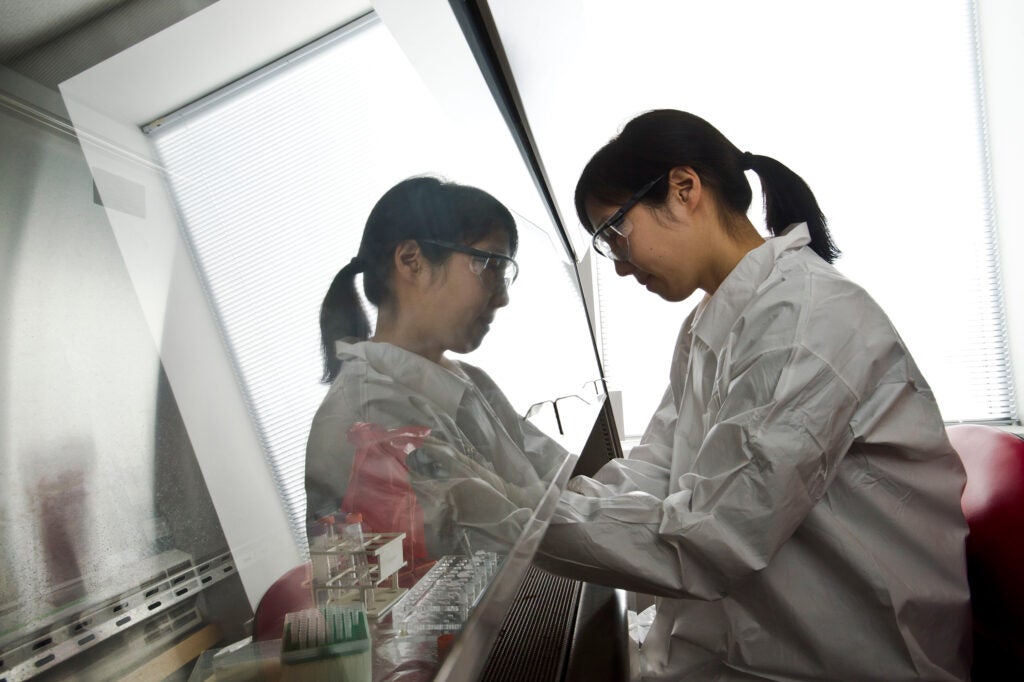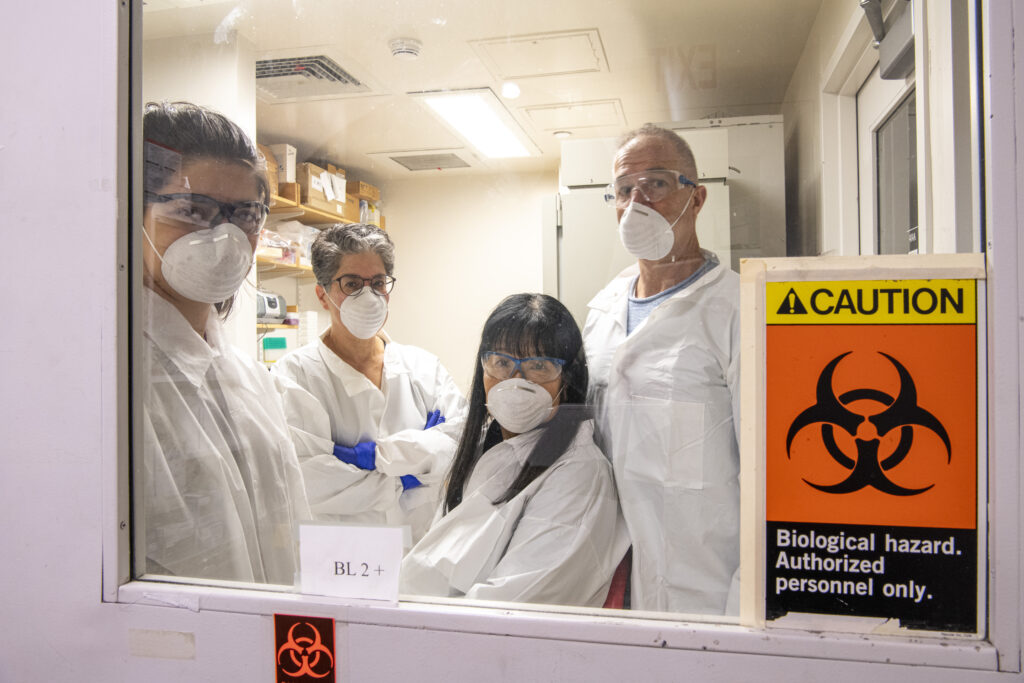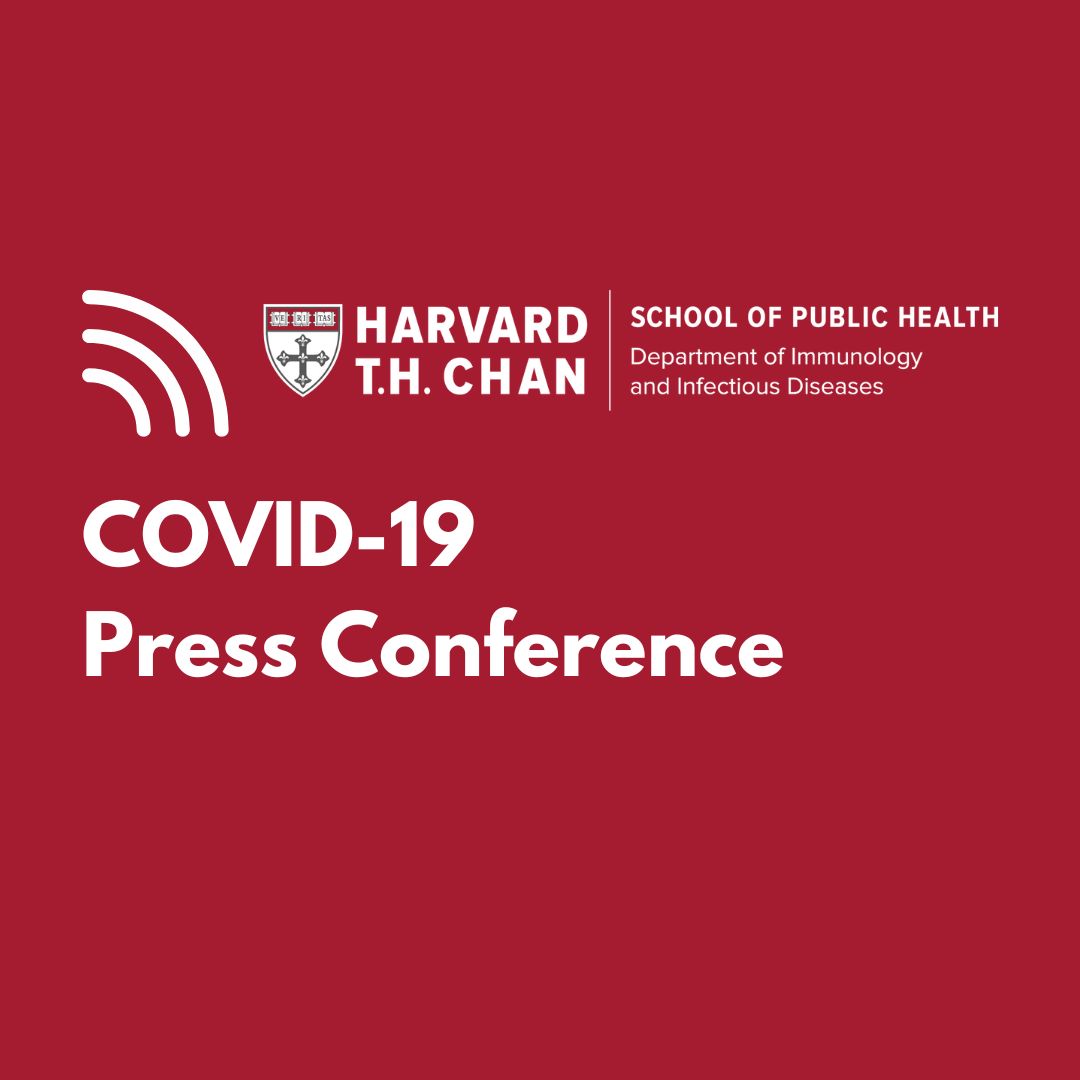Kanki Lab
Our research works toward improving our understanding of the pathobiology of important viral diseases in Africa and training students and research scientists. We collaborate with African scientists to address research questions that can translate to evidence-based real-world solutions, improved health outcomes, and sustained policy change.
651 Huntington Avenue
FXB Building, Room 405B
Boston, Massachusetts 02115

About the Kanki Lab
Phyllis Kanki’s research is focused on the virology, pathogenesis, and molecular epidemiology of HIV and other viral infections in Africa. In the mid-1980s, as a doctoral student with Max Essex at SPH, she was part of the team to discover the Simian Immunodeficiency Virus (SIV) in captive immunodeficient macaque monkeys and characterize its relationship to HIV. Her further research described African Cercopithecine primates as the natural host of SIV, leading to the first evidence of an SIV-related virus in humans in Senegal, West Africa. HIV-2 is the closest human immunodeficiency virus related to HIV-1 and based on long-term research collaborations with Professor Souleymane Mboup at Université Cheikh Anta Diop in Senegal, her work provided the initial characterization of this newly described zoonotic virus.

AIDS Prevention Initiative in Nigeria (APIN)
APIN: Collaborating to deliver HIV-1 care and treatment, and to build local capacity
In 2000, Phyllis Kanki created and directed the AIDS Prevention Initiative in Nigeria (APIN), with a $25 million grant from the Bill & Melinda Gates Foundation. She led the Harvard President’s Emergency Plan for AIDS Relief (PEPFAR) program from 2004-2013, providing prevention, care, and HIV antiretroviral therapy in Nigeria, Botswana, and Tanzania. Harvard PEPFAR is one of the largest grants ever awarded to Harvard. The program engaged in capacity building for clinical, laboratory, and research capabilities and supported treatment for over 300,000 AIDS patients. Phyllis Kanki is currently collaborating with Nigerian scientists on implementation science work to optimize HIV outcomes.
EBOV and ZIKV
Response to Ebola and Zika Epidemics
Following previous epidemics of Ebola (EBOV) and Zika (ZIKV) virus, Phyllis Kanki’s research has documented the presence of ZIKV infection in Senegalese and Nigerian fever patients over ~25 years, demonstrating the endemicity of this unique arbovirus in the region. Research studies have described the longevity, specificity, and cross-reactivity of T cell responses to ZIKV and dengue (DENV) and characterized the T cell responses in survivors and exposed healthcare workers from the 2015 Nigeria EBOV outbreak. A recent prospective study of pregnant women in Jos, Nigeria has characterized acute ZIKV, DENV, and Chikungunya virus infections with an association to abnormal birth outcomes.
COVID-19 Research
SARS-CoV-2 in Nigeria
In response to the SARS-CoV-2 pandemic, Phyllis Kanki collaborated with BIDMC investigators to study the relationship of SARS-CoV-2 genetic variation, antigenemia, and viral infectivity. In studies with Dr Jin-Ah Park, she looked at SARS-CoV-2 infection in human respiratory epithelial cells to better understand cellular responses associated with risk factors for COVID disease. She also engaged in studies of SARS CoV-2 infection in Nigerian healthcare workers which answered important questions on the immunopathogenesis of SARS CoV-2 infection and induction of vaccine immunity in this high-risk population.


Our Research
SARS-CoV-2 in Nigerian Health Care Workers
IIn early 2021, we assessed healthcare workers and SARS-CoV-2 vaccine recipients at Lagos State University Teaching Hospital using Western blot serology and T-cell response tests. Notably, about 15% of the general population showed pre-existing immunity to SARS-CoV-2, suggesting that prior infections with other coronaviruses might provide cellular immunity.
Chikungunya virus (CHKV) and abnormal infant outcomes
From 2019 to 2022, 1006 pregnant women in Nigerian clinics were screened for Zika, Dengue, or CHKV. Of these, 119 tested positive for CHKV, with 36 undergoing detailed lab tests. Findings indicated CHKV was linked to infant abnormalities such as stillbirth, cleft lip, microcephaly, preterm delivery, polydactyly with sepsis, and jaundice.
Point-of-Care Viral Load Monitoring in Patients with HIV-1 in Nigeria
HIV-1 viral load is an essential tool in monitoring viral suppression in people living with HIV. The Cepheid GeneXpert system, providing results in 2-3 hours, was tested against traditional lab methods for monitoring HIV-1 viral loads in 696 patients across two Nigerian clinics during a 2018-2019 study. This point-of-care test allowed quicker treatment adjustments for patients and enhanced documentation and patient retention.




